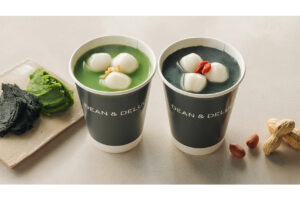

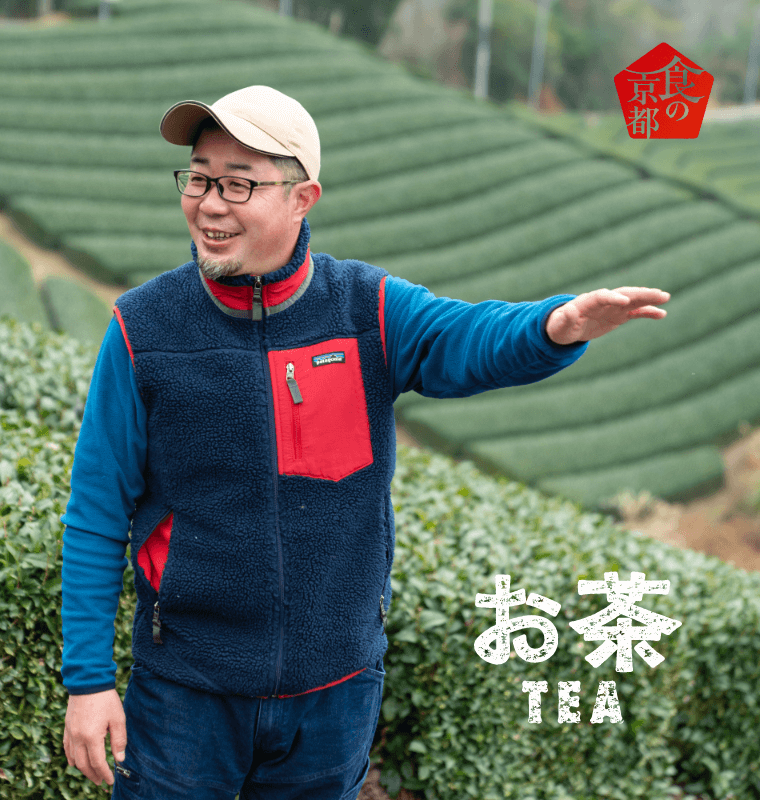
special interview


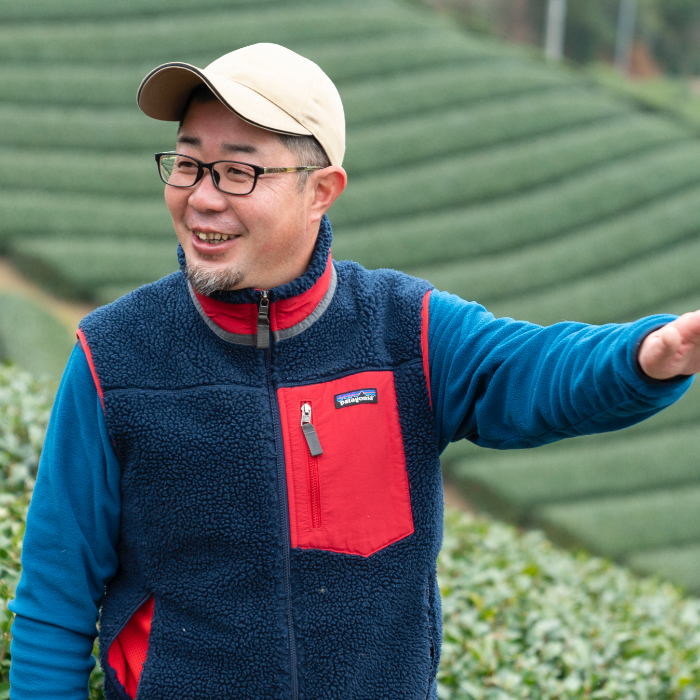
Katsumi Kitamoto
Katsumi Kitamoto
Born in 1977 in Minamiyamashiro Village, he has been making tea since he was 23 years old and became the fourth generation to take over Kanekatsu Kitamoto Farm. 28 years old, he switched from sencha to tencha production, opened his own route, and incorporated the company. 2020, he became the 91st leader of the Kyoto Prefecture Tea Industry Union Youth League, and has made a great achievement.
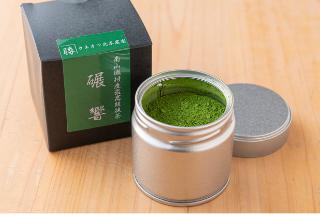
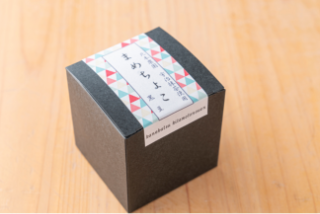
Mr. Kitamoto has been asking himself what he needs to do to make delicious tea. In the few years since he took over the farm from the Taisho era, he realized that he did not know what kind of tea leaves he would produce himself. Because of his enthusiasm, he switched from sencha, whose producer is unknown, to tencha, which is the source of matcha, and which he knows was produced by Kanekatsu Kitamoto Noen. However, the production methods for sencha and tencha are different, and some tea trees are suited for sencha while others are suited for tencha, so it was necessary to change from the tea plantation. Mr. Kitamoto said, "I went to Wazuka and Uji to study, but the temperature, atmospheric pressure, and air currents are different from those in Minamiyamashiro Village, so I studied on my own by reading books and other materials. For tea, the most important thing is the tea plantation. The most important thing for tea is to have good quality buds (tea leaves) in the tea plantation," he says. He says, "The tea leaves are the most important part of the process. He plucks the buds and brings them back to the factory. This is the only way for the fresh leaves to begin to decline and fermentation to begin. Tea is inherently so delicate. Tea leaves from the finest tea plantations are harvested and delivered to consumers at 100% of their full potential. This leads to delicious tea.
Mr. Kitamoto also produces high-quality powdered powdered green tea and focuses on processed products. While the tea is used as an ingredient in the green tea soft-serve ice cream sold at the roadside station in Minamiyamashiro Village, Kanekatsu Kitamoto Farm also comes up with products of its own. The "Tea Genovese Sauce," which goes well with pasta and potato dishes, uses additive-free basil, shiso leaves, and edible powdered tea. Other ingredients needed for processed tea products, such as lemon for flavoring stem hojicha. From now on, Mr. Kitamoto would like to look into and challenge various things related to tea. Tea and processed products made by people who are ambitious at any age seem to be different.



commuting circle/Uji
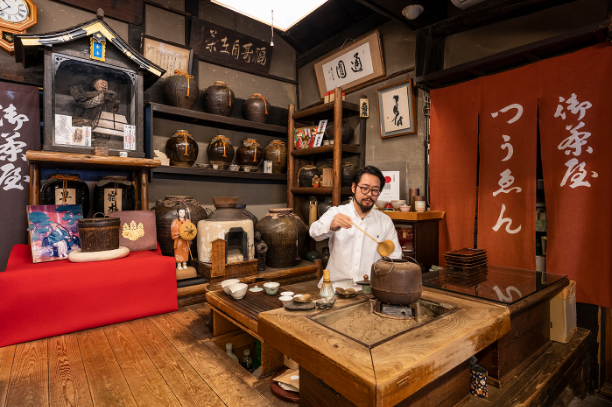
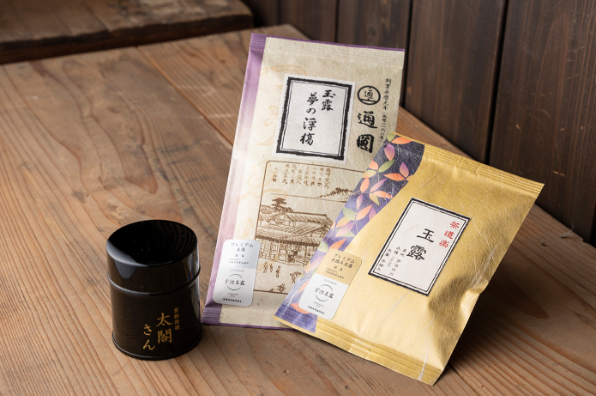
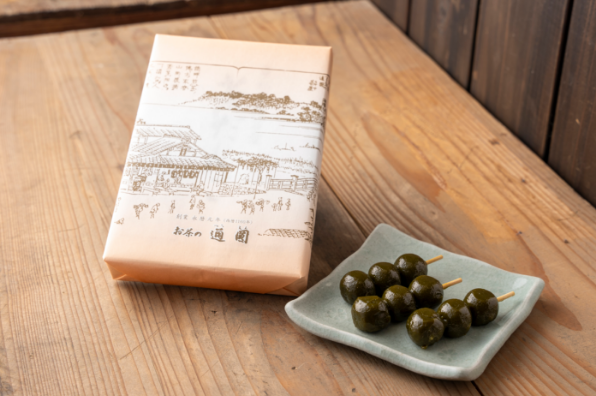
Gyokuro "Yume no Ukibashi" 2,700 yen/50g, Gyokuro "Chadoraku" 2,700 yen/30g, Matcha "Taikoo-san" 5,400 yen/30g. Small and cute, 10 tea dumplings 540 yen.
A tea shop founded in the first year of Eireki, located at the foot of Ujibashi Bridge. We carry a wide range of Uji teas selected by our long-established connoisseurs, from everyday use to high-end products, and we also have 4 brands of premium Uji teas certified by Kyoto Prefecture in 2020. Shoppers are also treated to tastings, and some regular customers come to enjoy a cup of tea in the space that still retains the remains of a townhouse built in the Edo period. There will also be a tea room overlooking the Uji River.
all yen
commuting to nursery school or kindergarten
Marukyukoyama Maen Nishinotoin Oike
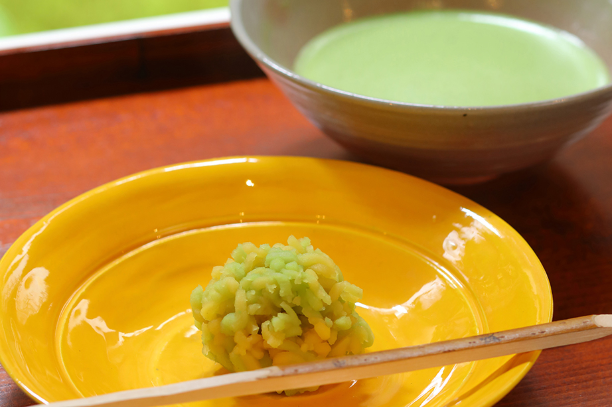
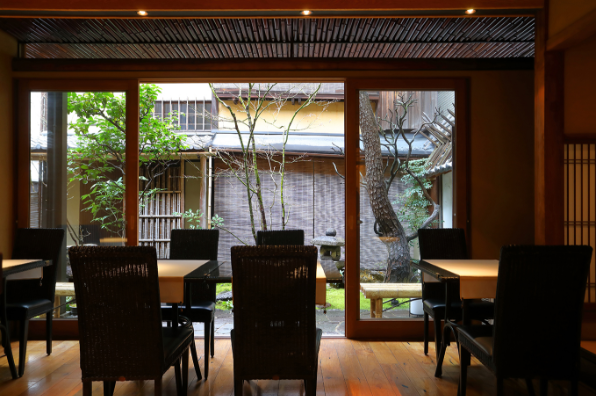
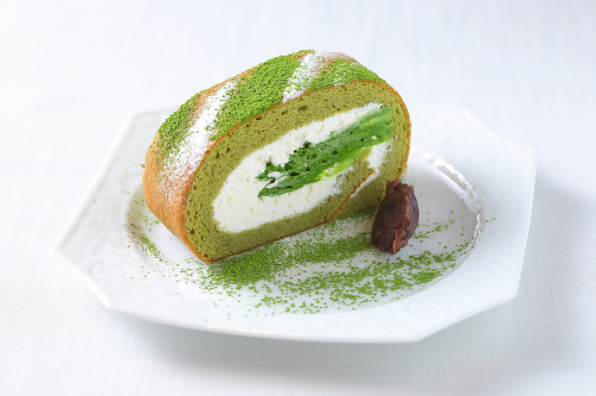
Usucha "Gano-in" tea and wagashi (Japanese confectionery) for 1,200 yen. Three kinds of Japanese sweets are available, which change daily. Matcha green tea roll cake 800 yen
Marukyu Koyamaen, a long-established Uji tea store established in the Genroku era, has set up a store and teahouse in the city. The store, housed in a 120-year-old machiya (townhouse), offers a wide variety of its own Uji tea and sweets, as well as matcha, gyokuro, and sencha teas blended exclusively for the Nishinotoin store. In the back of the store is a tea house overlooking a tsuboniwa garden, where you can enjoy the combination of high-quality tea with Japanese sweets and original sweets in a relaxed atmosphere.
Marukyu Koyamaen Nishinotoin Store
Marukyukoyama Maen Nishinouinou Tenmae
Michi no Eki Ocho-no-Kyoto Minami-Yamashiro-Mura / Minami-Yamashiro-Village
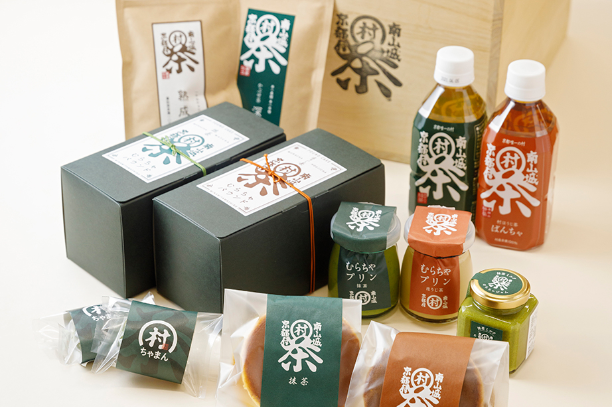
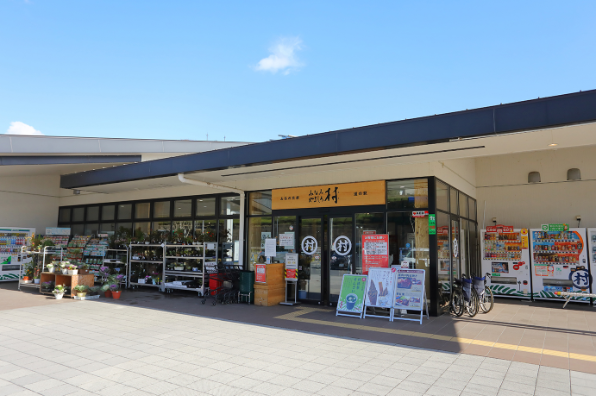
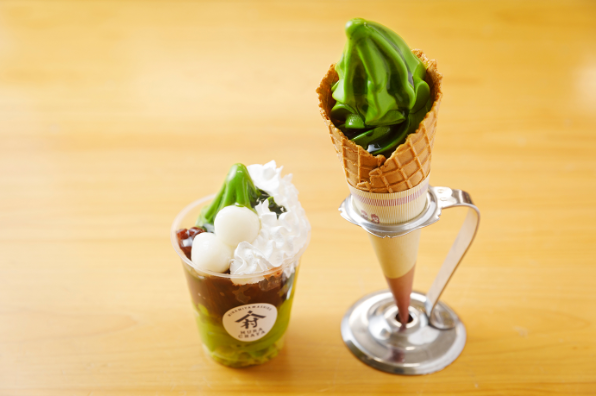
At the "Nomon Market," tea leaves, tea sweets, and other original products perfect as souvenirs are available for purchase. Village green tea soft serve ice cream and green tea sundaes are also available at the Village Tea House.
This roadside station serves as a tourist base for Minamiyamashiro Village, the only village in Kyoto Prefecture. It has a "Nomon Market" with original products using tea and fresh vegetables, a "Village Tea House" selling take-out tea sweets, a "Tsuchinobu" cafeteria with menus that reflect the village's climate, and a "Murabito" that provides information on sightseeing and events. Visitors can experience the foodstuffs and culture nurtured in Minamiyamashiro Village, including tea.
Roadside Station: Tea Kyoto Minami-Yamashiro Village
Michi no Eki Ocha no Kyoukyo to Minami Mashiro Mura
 News
News Feature article
Feature article Featured event
Featured event